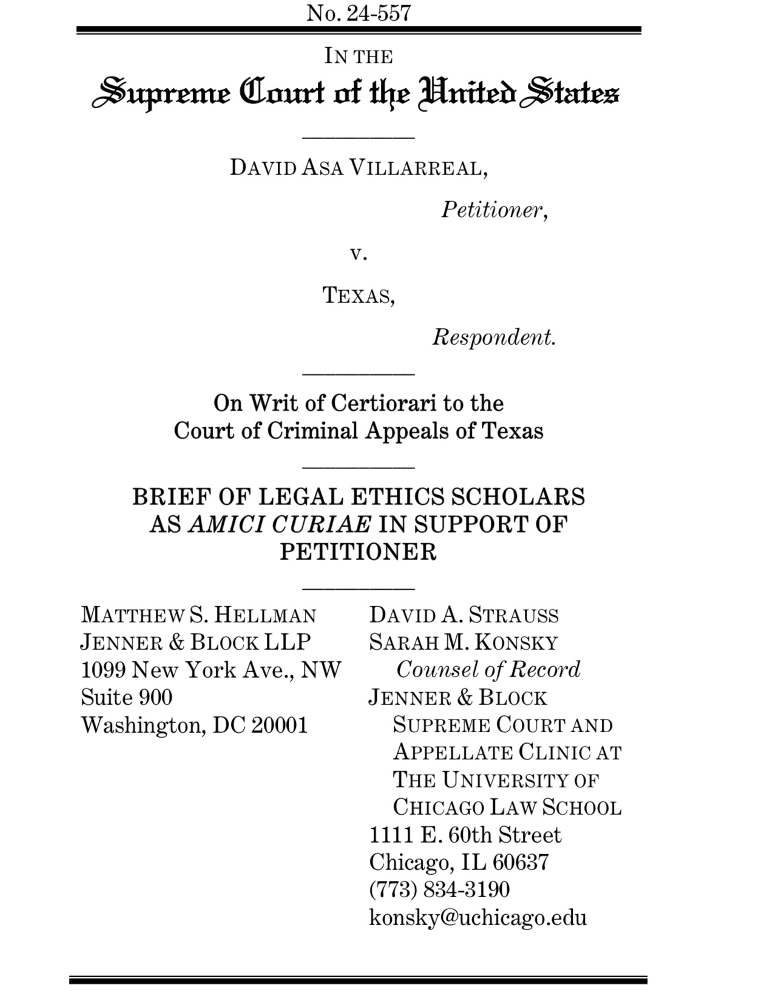October 6, 2025
SCOTUS Kicks Off 2025 Term with Focus on Legal Ethics, Introduces New Judicial Anti-Bias Rule

The U.S. Supreme Court commenced its 2025 term with a notable emphasis on legal ethics, a subject that has increasingly found its way into the judicial spotlight. This year's opening day was distinguished not only by the traditional ceremonial aspects but also by the court's decision to hear Villarreal v. Texas, a pivotal case concerning the constraints placed on attorney-client discussions during trials. Legal ethics scholars, including Renee Knake Jefferson, have contributed to an amicus brief, asserting that the trial court’s prohibition of lawyer-client discussions during recess undermines foundational legal principles such as attorney-client privilege.
This case is particularly significant as it represents the sole legal ethics issue the Supreme Court has agreed to hear so far this term, despite having granted certiorari to several dozen others. The spotlight on such cases recalls the 2009 term, which saw an unprecedented seventeen legal ethics cases addressed by the court.
In related news, the Michigan Supreme Court has enacted a revised judicial anti-bias rule which mandates that judges perform their duties without bias or prejudice, a change from the previous language that suggested judges "should" avoid bias. This adjustment, effective from January 1, marks a significant development in judicial conduct standards, aiming to enhance fairness and respect in courtroom proceedings.
The legal community is also reacting to other substantial developments. For instance, the Texas Supreme Court has proposed ending the American Bar Association’s control over law school accreditation in the state, a move that could reshape legal education nationwide.
Furthermore, the legal sector is buzzing with discussions about the Department of Justice’s inquiry into Fani T. Willis, the Georgia district attorney who prosecuted former President Trump. This investigation highlights the ongoing complexities and controversies surrounding legal ethics in high-profile political cases.
On an academic note, legal scholars continue to explore the boundaries of legal ethics through various publications and studies. Noteworthy among recent contributions are discussions on the potential of legal insurance to bridge the access-to-justice gap and the role of interoperable legal AI in enhancing judicial processes.
As the legal landscape continues to evolve, these discussions and cases underscore the critical importance of ethics in maintaining the integrity and functionality of the legal system. The Supreme Court’s decisions in the coming months are eagerly anticipated, with the potential to significantly influence both the practice and perception of law in contemporary society.